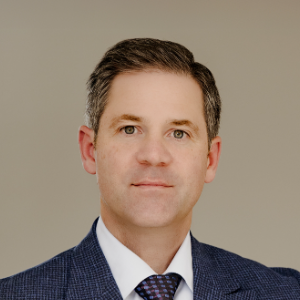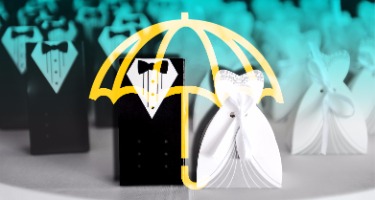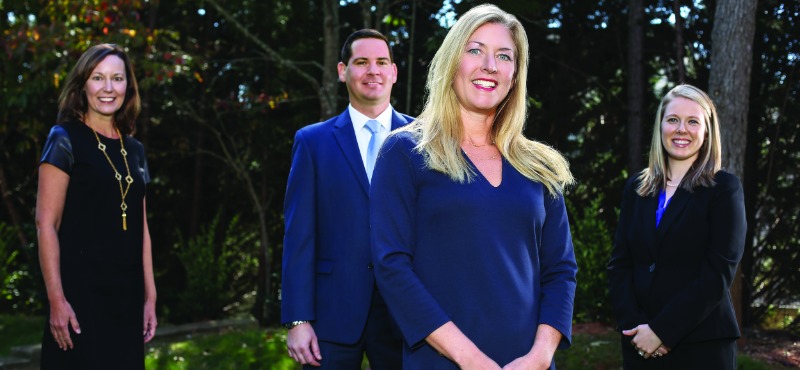The purpose of this article is to assist lawyers in preparing to examine experts in a family law case. Over recent years, family law trials have increasingly involved the utilization of expert witnesses and their testimony.
In child custody cases, experts may include guardians ad litem, investigators from the Department of Human Services, forensic interviewers and mental health professionals, including custody evaluators. In asset cases, experts include appraisers, forensic accountants and business valuators.
There are two major goals for expert testimony. The first goal is an effective presentation of expert testimony that supports the client’s position
on direct examination, and the rehabilitation of the expert’s testimony following cross- examination. The second is an effective challenge, through cross- examination, to the presentation of an unfavorable expert opinion. In order to achieve the two major goals of expert testimony, considerable preparation by the lawyer is required. Otherwise, the desired goals of utilizing expert testimony may slip away. Family lawyers must prepare in advance to achieve the two main goals of expert testimony. The goals of an effective presentation of favorable expert testimony on direct examination and an effective challenge to unfavorable expert testimony on cross-examination can be achieved with advance thought, research and preparation.
Why do we use experts in family law? Our clients and lay witnesses can testify as to personal observation or as to the facts of a situation as they perceive them. Our clients, the parties to the case, are able to opine on matters such as what they believe is in the best interests of the children. A party may offer an opinion as to the value of his or her property. However, sometimes one side has less access to financial or property information than the other.
Where there is an information imbalance, the question of the value of property or a business interest becomes increasingly complicated. Concerns as to the mental health of parents or the children may arise. In complex circumstances, lay witnesses may be limited or completely unable to give an opinion that
will assist the judge in arriving at a decision. Finally, the parties have a stake in the outcome of the matter. It is inevitable that the parties will be perceived as possessing a bias that will erect a barrier to the credibility and objectivity of their testimony. It must be acknowledged that they are testifying about a matter where they stand to benefit from the outcome. As a result, we frequently look to experts to aid the court by offering opinions about such things as property values, mental health questions and children’s best interests.
The job of experts is to help the judge understand the evidence or to determine a fact in issue in the case. Experts, such as accountants or appraisers, in family law cases are most often used to aid the court in understanding or determining actual values of tangible assets. Mental health professionals, such as psychiatrists, psychologists or licensed professional counselors, can provide diagnostic confirmation and recommend behavioral structures that might assist the parents in functioning in a fashion consistent with the child’s best interest. Licensed social workers are educated in methods to investigate matters such as home environments and other information that the court cannot see due to the nature of the courtroom.
There are three qualifications for expert testimony to be admissible:
- Expert testimony must be based upon sufficient facts or data,
- the testimony must be the product of reliable principles and methods accepted within the expert’s profession, and
- the expert must have applied the principles and methods to the facts of the case in a fashion that is both reliable and valid.
Oklahoma appellate courts have emphasized and enforced the application requirement in family law cases. When preparing to question an expert witness, whether on direct or cross- examination, start by thinking about the three criteria.
INFORMATION GATHERING
Preparing to examine an expert witness begins with gathering information. Standards, as well as published rules and regulations related to the acceptable principles and methods criteria, for many types of experts are widely available. At the onset of preparation, the family law attorney should look to the professional’s licensing or governing board. For example, appraisers are governed by the Uniform Standards of Professional Appraisal Practice, which is the generally recognized ethical and performance standards for the appraisal profession in the United States. Licensed clinical social workers and licensed professional counselors are governed by the Oklahoma Licensed Professional Counselor Act. The existence of such guidelines can extend to the full range of mental health professionals wishing to conduct evaluations involving child custody. Guardians ad litem and parenting coordinators are governed and guided by statutes and rules of professional conduct.
Even expert witnesses who do not have controlling statutes or regulations, such as forensic interviewers, have standards and protocols. Forensic interviewers are generally trained and familiar with protocols established by Cornerhouse or the National Institute of Child Health and Human Development. Evaluations performed by licensed psychologists are expected to adhere to the “Guidelines for Child Custody Evaluations in Family Law Proceeding” as published by the American Psychological Association. Business valuators should be familiar with the American Institute of Certified Public Accountants’ Statements on Standards for Valuation Services No. 1. These are guidelines rather than requirements, so they must be viewed as aspirational rather than mandatory. Therefore, the question becomes “Don’t you aspire to do your best?” The standards, rules and guidelines for the expert’s profession may provide an excellent starting point for developing qualifications for direct examination or for identifying vulnerable areas for cross-examination.
Where an expert is working pursuant to a court order, the court order for the expert’s work can be a useful tool for preparing to examine the expert at trial. Request that the court order provide the expert with instructions and expectations for the work. Ask the expert in advance for input into the parameters of the court order. Identify the contact information for the expert specified in the order for the benefit of the parties and the court. Clearly determine the nature and scope of the work that the expert is being asked to undertake. Specify in the order the controlling standards or guidelines for the expert’s work. The order should obligate the parties to cooperate with the process. The court order may require the preservation of notes made by the expert as well as production of a written report at the conclusion of the expert’s work. With the input of the expert, identify a date for completion of the report (e.g., 10 days before pretrial conference). Where the expert’s work may use sensitive information, the court order may include a protective order.9 Identify, in the order, to whom the written report may be disclosed.
Books related to a field of expertise can help familiarize us with the language used by professionals in the field, the perspectives of the experts in performing forensic work, typical information they need to do their best work, as well as the standards and guidelines for the particular field. Treatises and reference books are widely available for family trial lawyers. Diagnostic and Statistical Manual of Mental Disorders, Fifth Edition, is available through American Psychiatric Association Publishing. The Minnesota Multiphasic Personality Inventory-2 (MMPI-2) is the most commonly utilized inventory
in custody evaluations, and the most widely referenced book for the MMPI-2 is MMPI-2: Assessing Personality and Psychopathology, 5th edition, by John R. Graham. Books such as Shannon Pratt’s The Lawyer’s Business Valuation Handbook and Standards of Value: Theory and Applications, by Jay Fishman, Shannon Pratt and William Morrison, are helpful in cases involving valuation of businesses. There are many other books written for professionals in a specific field of expertise as well as books written for lawyers who wish to have an understanding about a particular profession or field. Such books are great resources for preparing to examine an expert from a particular field.
Family lawyers can use the pretrial discovery process to gather valuable information concerning an expert witness. A professional vita provided by the expert can be a most efficient method for collecting such information. Many experts either have websites or social media profiles. Licensing boards may also have information available online. Oklahoma’s Discovery Code specifically addresses our ability to request and obtain detailed information about an expert retained by the other side. Valuable information can be gathered with a single interrogatory. Our family law statutes require disclosures
by court experts in custody or visitation cases. When we consider an expert, we should gather information from the expert as to the education, credentials, evaluative procedures and qualifications of the expert. Specialized continuing educational participation that uniquely qualify the expert for custody evaluations are of considerable interest as well.
A conference with the expert witness before trial might be of value. Bring a paralegal or assistant to the meeting to take notes. Such professional conferences will allow the family law attorney to clarify and confirm elements of the written report required of the expert.
It is significant for the attorney to confirm that the written report includes all methods and techniques utilized in this matter. For custody evaluations, all data pertaining to any personality inventory administered and any other projective testing used can be of great benefit. Clarify what techniques and procedures the evaluator did in the case, and ask about the facts of the case and the expert’s opinions. Ask questions that allow you to learn about opinions or perceptions that are both assets and liabilities to your client’s position. Clarify what techniques and procedures the evaluator did in the case, and ask about the facts of the case and the expert’s opinions.
Read the expert’s report thoroughly. If you have the resources, hire an expert consultant to review the report of the expert who will testify, and ask the consultant to assist you with interpretation. A consultant can help identify points to cover with the witness. Familiarize yourself with the testifying expert’s qualifications and credentials, and identify the expert’s potential biases. Request the expert’s file, including notes made during the expert’s work, and read the notes.
For custody evaluations, subjective areas where personal weight and judgments were made by the expert are most dependent upon the clinical interview. The exact nature of the interview can be reviewed by obtaining a copy of the evaluator’s notes. Consistent with the Oklahoma Rules of Professional Conduct for Licensed Professional Counselors guidelines, it is not unreasonable to expect the evaluator kept and preserved notes andthat the notes will be easily readable. If your examination of the evaluator’s notes suggest your client had been treated inequitably as to number of interviews, a variance in methods of child observations or an oversight in the interpretation of a self-report personality inventory, these may be areas for developing cross-examination of the witness. Significant statistical data is available on the most commonly utilized inventory, the MMPI-2. Many custody evaluators may be dependent upon computer-generated narratives rather than their actual training with the MMPI-2. The question may become were the proper, age-appropriate instruments utilized in the evaluation of the child, and is the evaluator properly trained in the utilization of these instruments? Additionally, the most effective instrument might not have been used because the evaluator was not familiar with the instrument.
During the pretrial discovery process, evaluate the nature of the other side’s proposed expert testimony for challenge before trial. The United States Supreme Court’s holding in Daubert v. Merrell Dow Pharmaceuticals, Inc. has been determined to apply in Oklahoma. In Christian v. Gray, the Oklahoma Supreme Court applied Daubert and added:
... in Kumho the U.S. Supreme Court stated that when the evidence is not novel a trial court may make that determination and avoid a prolonged Daubert inquiry ... [A] Daubert inquiry will be limited to circumstances where the reliability of an expert’s method cannot be taken for granted. Thus, a Daubert challenge includes an initial determination of whether the expert’s method is one where reliability may be taken for granted.
An expert opinion may be subject to challenge where there is not a clear connection between the facts of the case and the expert’s opinion, where there is a question about the reliability or validity of the proposed expert’s testimony or if there is a substantial risk that the proposed expert will confuse or mislead the trial court. Under such circumstances, request a pretrial hearing for exclusion of the proposed expert.18 Keep in mind that at a pretrial motion hearing for challenge of an expert, you may use leading questions even if you call the expert as your witness for purposes of the motion.19 Maintain perspective even if your pretrial challenge is overruled. A pretrial challenge, even if “lost,” may have the court on alert about the issues at trial. The trial lawyer can use the pretrial challenge to establish the lens through which the court will view the case.
EXECUTION
Before trial begins, have a clear concept of the goal you desire to achieve through your inquiry of the expert witness. Consistent with the two goals
of expert testimony, lawyers are examining in one of two modes. The modes are either constructive (use the expert to highlight facts that support your theory of the case) or destructive (attack/ discredit). Often each side to a family law case has good facts and bad facts. There are times when bad facts must be confronted and addressed. There are times when bad facts may be completely ignored. Our ethical rules make it crystal clear that none of us shall make a false statement of fact or law or fail to correct such false statements, nor shall we offer false evidence. However, we do not have an obligation in our case-in-chief to spend a lot of time talking about our bad facts. The first comment to Rule 3.4 of the Oklahoma Rules of Professional Conduct says:
The procedure of the adversary system contemplates that the evidence in a case is to be marshalled competitively by the contending parties. Fair competition in the adversary system is secured by prohibitions against destruction or concealment of evidence, improperly influencing witnesses, obstructive tactics in discovery procedure, and the like.
Yet another subjective decision we must make on a case-by-case basis is how much, if any, time or attention we will give to the bad facts of our case at trial. Time spent on an issue at trial is the measure of that issue’s overall value to the case. If the bad fact can be explained credibly, it may be worth mentioning. On the other hand, completely ignoring the bad fact will send the message, “We aren’t talking about that because it’s not important for this case.”
When examining an expert in the constructive mode, there may be value in getting the expert’s opinion into evidence as soon as possible, rather than merely at the end of your questioning. In psychology, the primacy effect refers to our tendency as humans to better remember and assign greater value to the first items or information presented in a series than that presented later in the series. Our Evidence Code permits experts to offer their conclusion – their opinion or inference – at the onset of their testimony. Direct examination also brings the opportunity to establish the expert’s education, training and experience. The other side may offer to stipulate to the witness’s credentials and expertise. Accepting such a stipulation is subjective and should be made on a case-by-case basis. For example, for a witness who testifies in the jurisdiction frequently, a joint stipulation as to the qualifications may save time. A joint stipulation as to the qualifications may enable the “What is your opinion?” question at the very beginning of the examination.
However, there may be value to the court and for the record to spend time highlighting the witness’s qualifications. Where there are competing expert opinions, the experts’ respective qualifications may be important in determining which opinion will be received. Each constructive examination should include questions about the data on which the expert relied, the methodology used and how the methodology was applied to the facts of the case by the expert. Constructive examination can be done on cross- examination of an expert whose opinion is disfavorable to your client’s objectives. A powerful way to deal with an opposing expert is the juxtaposistion of facts that support your client’s case against the expert’s conclusion. The prepared trial lawyer can change the narrative in the case by using positive facts affirmed by the expert that support your theory of the case. Using leading questions, have the expert affirm facts favorable to your client’s case. The positive facts may include client conduct and information acknowledged by the expert in the expert’s written report as well as information known by the expert but omitted from the report. A constructive examination of an expert witness may include hypothetical questions concerning information the witness may not know applies to the case. Thus, a constructive, fact-based cross-examination need not address the expert’s adverse opinion. The contrast between the facts affirmed by the witness and the expert’s conclusion can be made in closing argument.
For cross-examination, look for facts that show what the expert missed, what the expert could have done, what the expert overlooked, how the principles and methodology are not reliable and how the application was not reliably applied to the facts of the case. Consider hiring an expert consultant to help you develop cross-examination questions for the witness. Use the witness’s written report to identify biases, overlooked facts and facts that are good for your case. Seasoned experts sometimes focus on the “summary” nature of their written reports to excuse the omission of facts that could be viewed as contradicting the expert’s conclusion. Early in the cross-examination, use leading questions to have the witness affirm her training in writing reports, experience in writing reports and the use of all her professional skills and judgment to write the report in question. Ask the witness to affirm that she has reviewed the report before the trial, and that there is nothing she wants to add or remove from the report. Tie the expert to her report. After those questions, cross-examine the witness on the facts the witness knew about but left out of the report, as well as the facts in the report that are good for the case. Bias and credibility problems may include failure to interview a key witness, imbalance of time spent with one side over another or a tendency to make the same conclusion in every case.
In the destructive mode, the goal may be to prevent the expert from testifying altogether or to discredit the expert’s testimony. From a practical standpoint, it can be very difficult to disqualify an expert. Each legal community generally has a handful of experts that are called upon to regularly testify. Their qualifications are often well-established and accepted by the courts. Judges in family law cases have broad discretion on matters of evidence and thus may be lenient about letting evidence into the record.24 The judge can separate the “wheat from the chaff” and hear what the expert has to say. While our professional duties work should not be taken personally, it may not bode well for future relationships when a lawyer attempts to have an expert disqualified for a weak claim of bias or lack of expertise. The lawyer should consider all of these points when deciding whether and how to attempt to prevent the testimony of an expert.
One possible approach in the destructive mode is to show the judge that the expert cannot be relied upon in this particular case. In other words, “This is a qualified expert generally, but in this case he got it wrong.” Experts are not perfect, and they have no hidden magic or secrets that allow them to predict the future. Identify the subjective areas of the expert’s opinion and highlight those areas on cross. Any time the expert uses judgment to assign what weight to give to certain facts this is an area open for attack. Have the expert admit that reasonable experts may differ. Experts get involved, perform their investigation and testing then reach a conclusion and provide a report. There are virtually always areas subject to challenge. The use of hypothetical questions can mute a potential long-term conflict between a child custody evaluator and a family law attorney. Emphasis in this destructive examination is on application – the expert did not properly apply the principles and methods to the facts of this case in a fashion that is both reliable and valid.
Closing argument is the time to highlight the evidence brought forth during trial and the meaning of that evidence. Use closing argument to show how the opinion of your client’s expert best fulfills all three qualifications for expert testimony and how your client’s expert opinion makes sense under the circumstances. Remind the court of the opposing expert’s statements of positive facts and favorable admissions. Closing argument is an opportunity to explain and argue the problems with the opposing expert such as lack of expertise, bias or misapplication of the principles and methods to the facts of this case. Discuss the expert testimony work in the context of all the other evidenceto show how it all fits and that the logical conclusion is your client’s desired outcome of the case.
Family law cases frequently involve experts from various fields. Preparing to question a family law expert begins long before trial. There are a
wide variety of resources and information to help us learn about fields of expertise, professional standards and the individual expert in a particular case. The Discovery and Evidence Codes offer a variety of tools and options for creativity. Of course, an expert’s opinion is just one brick in the wall, a part of a whole. Many experts forget this fact. The judge still makes the final decision based on all the evidence. With advance thought, planning and work, we can question experts effectively as part of presenting our client’s entire case.





















